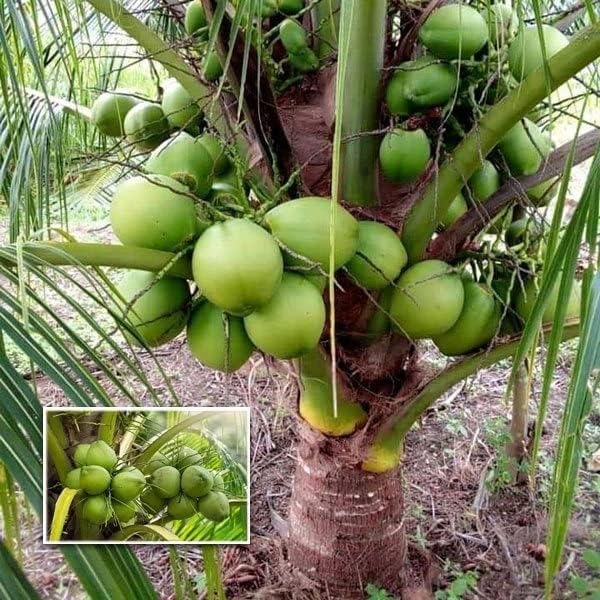and the only specie of the genus Cocos.
The term coconut can refer to the whole coconut
palm or seed, or fruit, which botanically, is a
drupe, not nut.
Coconuts are known for their versatility
ranging from food to cosmetics which form a
regular part of diets of many people in the
tropics and subtropics. Coconuts are distinct
from other fruits for their endosperm
containing a large quality of water (also called
milk) and in the immediate may be harvested
for the potable coconut water.
They can be used as seed nuts or processed
for oil, charcoal from the shell and coir from the
brous tusk when matured; when dried, the
coconut esh is called copra. The oil and milk
derived from it are commonly used in cooking
and frying as well as in soap making and
cosmetics.
The husk and leaves can be used as material
to make variety of products for furnishing and
decorating. Coconut is cultivated in more than
90 countries all over the world with an
estimated production of 74.3 billion nuts per
annum.
In Nigeria, coconut can grow in any part of
the country, especially with the improved
technology available and the demand that has
increased to an upward of 500% in the last
decade. This is because coconut based
derivatives, such as virgin coconut oil, health
products and coconut water, have all seen large
spikes in demand so much that producers may
not be able to keep up.
Indeed, numerous foreign rms are willing
to invest in the supply side of coconut
production, especially in countries like
Malaysia, Indonesia, India and Sri-Lanka's
Ultra-Productive 'Coconut Triangle' region. In
Nigeria, we can explore the potential of the
coconut economy to create jobs/wealth,
increase revenue and grow the economy.



Add New Comment